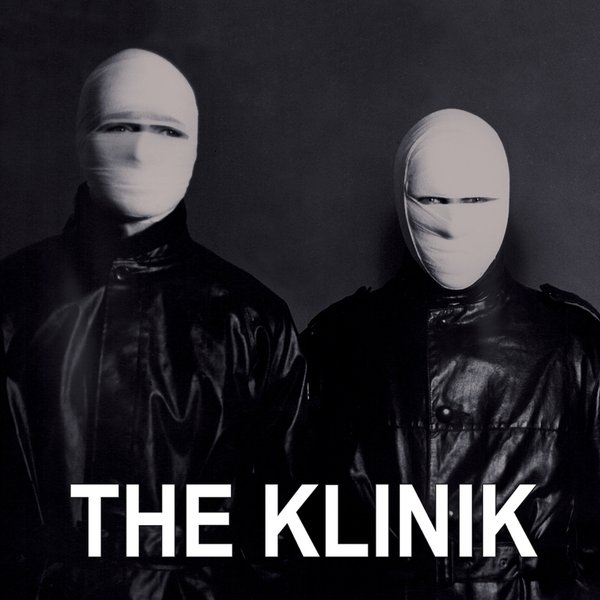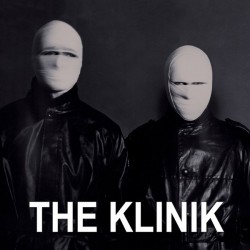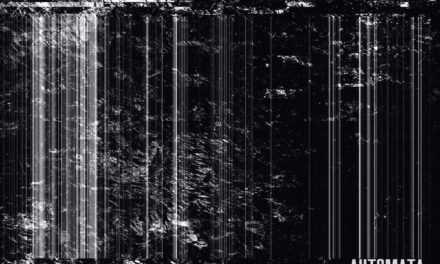The Klinik
The Klinik 84 91
Out of Line
It’s not even the first time a large amount of the material on The Klinik 84 91 has been available this decade, although with the profile classic EBM has been enjoying of late, the timing feels right to get a large chunk of the infamous project’s catalogue back in circulation. Not that it seems likely they will enjoy more widespread acclaim that at any other point in their history mind you; more than many of the marquee acts that make up the history of 80s and early 90s body music, the collaboration between Dirk Ivens and Marc Verhaeghen is the most resistant to being discovered and picked over by entities outside of Our Thing. The woozy, tense and barely restrained violence of their music simply isn’t for trainspotters or those without the stomach for its poisonous charms.
That’s really part of what makes The Klinik such a fascinating case though, and one that secures them in the hearts of our most faithful genre devotees. There’s little chance of anyone hearing the plodding bass and drum machine crashes or Ivens’s delayed exhortations on “Sick in Your Mind” and casually deciding to look into the group. Despite having grown out of Ivens’s unapologetic electropop project Absolute Body Control (a collaboration with Eric Van Wonterghem whose story is tied into the Klinik beyond his brief stint in early incarnation Absolute Controlled Clinical Maniacs), The Klinik remains enigmatic and uneasy, even to those attuned to the vast swathes of electro-industrial music they would influence either directly or indirectly. To wit, this is still difficult music a couple of decades on, and it seems unlikely it will ever not sound that way.
The 8 CD collection housed in a book is (a format Out of Line used to collect the discography of Dirk Ivens’ Dive project in 2012) is certainly the most comprehensive look at the Ivens and Verhaeghen years ever compiled. Unlike 2001’s End of the Line which was essentially a 2-CD best of plus a live and remix disk, 84 91 compiles the contents of every Klinik album, EP and single from the period before Ivens departed and Verhaeghen took sole proprietorship of the name for a decade and a half. The double-edged sword is of course that those already initiated into fandom will likely own much of this material, whether in the original pressings or the Hands reissues of the key albums from 2005. There’s a few previously unreleased tracks and some live material included as a concession, but really the appeal is in having a consolidated package of all this music for the first time ever, accompanied by a handsome collection of photographs and a some perfunctory credits. A full set of liners, an essay or a bio might have been an easy way to pump up the value of the $00+ set for dedicated fans, but there’s almost something perverse about the idea of having The Klinik explain themselves. Much like their music, 84 91 is presented in a take it or leave it fashion, maybe not the wisest strategy to sell a product, but they were never fussed about appealing to the average consumer anyway.
Of course half the fun of owning a set like this is in using it to paint broader portraits of the artist across a period of their career via the mechanism of listening marathons. If nothing else can be taken away from the roughly chronological collection is how close to their perfect form The Klinik were right from the moment of chrysalis. The band you hear side-one-track-one on 1984’s unsettling shot across the bow of electronic music Sabotage isn’t altogether different in instrumentation or mood from the one you hear fading into the shadows on 1991’s disquieting Time. Sure the make and model of the synths change and the quality of the production varies, but golden-era Klinik just sounds like The Klinik. If you don’t believe me load this set into an iTunes playlist and hit shuffle: I’d wager all but the most dedicated heads will have difficulty linking every track to it’s host album. Does ode to mental imprisonment “Sleepwalkin'”, with it’s simple scraping loop and low, rumbling bass belong to Plague or to Fever? Where does proto-powernoise single “Insane Terror (Never Again)” (an early hint of Iven’s predilection for rhythmic static) fit in? Which part of the nightmarish instrumental trifecta “Nautilus” appeared where? Their catalogue almost reflexively defies being easily categorized and mentally sorted, as inscrutable as the facial bandages they famously wore as stage garb and as hypnagogic as Verhaeghen’s feverish processed trumpets.
The enduring appeal for those who have learned to enjoy this music is abetted by that sense of obscurity and distance. Whatever your experience with these songs has been in the past, “familiar” isn’t likely to be amongst the list of adjectives you come up with to describe your relationship with them. For all the warmth of the analogue synths and springy reverbs, the Klinik has always been either frenzied hot or anxious cold. They don’t do comfortable, although they do engage in moments of occasional catharsis. When Ivens vomits out the hook of “Face to Face” it sounds for all the world like he’s purging it from his system, buying himself a moment of relative calm before the next wave of nausea overtakes him. Even the numbers that implausibly became club staples didn’t do so by dint of accessibility: “Black Leather” and “Moving Hands” are overtures to violence, real “move or get moved against your will” arrangements of rhythm, snares cracking like whips and kick drums beating like flesh on flesh, either sex or a fistfight depending on your inclination.
As much of a cop out as it might seem to be, you either get it or you don’t with this band, and no amount of trying will move you from one camp to the other. Counterintuitive as it may seem considering their demanding and onerous nature, those drawn to this incarnation of The Klinik actually find it pretty simple to understand: in the way that you never really consciously need to think about a skill once you learn it, listening to Ivens and Verhaeghen becomes something you do naturally, second nature to the believer, arcane to the outsider. At their best (a peak state they maintained for a surprising amount of the time in the 80s if we use this set to judge) The Klinik tapped into an ugly and primal place in themselves and their listeners, that this music ever made it to record before tearing itself apart or crumbling under the crushing weight of it’s own emotional toll remains remarkable. And yet here it is again, almost paradoxically packaged for ease of acquisition and consumption. Let the buyer beware: you may be in for a very long and turbulent voyage.







terrific write up but for the sake of completeness this is actually the THIRD klinik box set
http://www.discogs.com/Klinik-Box/master/2413